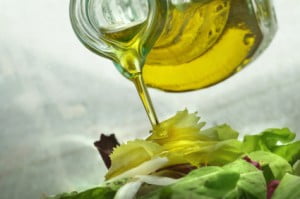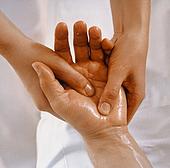The type of food you include in your regular diet contributes directly to your overall state of health.
Food containing refined sugar, chemical preservatives, and that is overly processed offer little to no vitamins or protein that is necessary to a healthy diet.
Maintaining a nutritious and balanced holistic diet is easy to do and contributes to a healthy lifestyle.
Question for Dr. Leia: Can you tell me what a holistic diet contains?
Dr. Leia’s Answer: Thank you for your excellent question. The word holistic comes from the word whole, which means healthy, complete, and total. A holistic diet is one that promotes glowing health and balance and will not injure or harm the body.
 A holistic diet is usually natural, meaning that the food is eaten in the most natural state in which it is grown—rather than being processed, packaged, canned, or frozen—and food that has not been adulterated or excessively refined and does not contain chemical preservatives.
A holistic diet is usually natural, meaning that the food is eaten in the most natural state in which it is grown—rather than being processed, packaged, canned, or frozen—and food that has not been adulterated or excessively refined and does not contain chemical preservatives.
A holistic diet contains living or fresh foods: foods which contain nourishing vitamins and minerals. It’s a balanced diet, one which will provide all of the essential protein, good fats, and complex carbohydrates in a balanced ratio.
Nowadays, healthy food would also include organic food grown without pesticides and harmful chemicals. A holistic diet is not necessarily a vegetarian diet or a vegan diet which contains no animal products. People who follow vegetarian and vegan diets need to pay more attention to getting adequate protein and B12 vitamins in their diet.
Balancing a Holistic Diet
Both the quality of the food and the balance of the types of food are important in maintaining a holistic diet.
The majority of the food to be included in a holistic diet includes fresh vegetables and fresh fruit, with a minimum recommendation of at least 6 servings of vegetables each day.
 The protein should be adequate but not excessive, and should include a minimum of 45 grams of good quality protein each day in the form of lean organic meat, such as chicken, poultry, or fish. Fish should be limited to two servings per week as some fish have excessive mercury levels. Depending upon your body type, whether it is muscular and athletic or sedentary, the protein should not exceed 75-90 grams per day. Most Americans and people in developed countries eat way too much meat and obtain upwards of 150 grams of protein each day. This would be too excessive for people who are sedentary.
The protein should be adequate but not excessive, and should include a minimum of 45 grams of good quality protein each day in the form of lean organic meat, such as chicken, poultry, or fish. Fish should be limited to two servings per week as some fish have excessive mercury levels. Depending upon your body type, whether it is muscular and athletic or sedentary, the protein should not exceed 75-90 grams per day. Most Americans and people in developed countries eat way too much meat and obtain upwards of 150 grams of protein each day. This would be too excessive for people who are sedentary.
Complex carbohydrates include whole grains, such as brown rice, whole wheat, unmilled barley, oats, and millet. These types of carbohydrates are preferred over the simple carbohydrates—for example white flour, white bread, or white rice—where the bran and hulls have been removed and the grain has been over-processed and over-refined. These simple carbohydrates have been proven to contribute to the development of diabetes, blood sugar problems, and other age-related diseases, including digestive problems, obesity, fatigue, colon cancers, pancreatic, and gall bladder problems.
Eating Fats, Sugar, & Salts
 Good fats should be eaten, but in moderation. Best fats include Omega-3 fatty acids, olive oil, nuts and seeds, and fish oils from salmon, anchovies, and sardines. Avoid trans fats. Animal fats should be eaten in extremely low amounts and hydrogenated fats, such as margarines, should be avoided altogether.
Good fats should be eaten, but in moderation. Best fats include Omega-3 fatty acids, olive oil, nuts and seeds, and fish oils from salmon, anchovies, and sardines. Avoid trans fats. Animal fats should be eaten in extremely low amounts and hydrogenated fats, such as margarines, should be avoided altogether.
Simple sugars—such as candy, cakes, and cookies—should also be avoided. Sugar is sugar is sugar, so sweets should be limited. If you feel like eating a little bit of something sweet, it should be eaten directly after a protein or fatty food. This way it does not enter the blood stream so quickly and will prevent blood sugar fluctuations.
Click here if you would like to learn more about the role of sugar in your health.
Avoid salt in excess, red meat, fried foods, and foods which you may be allergic or to which you may have a food sensitivity. Highly allergenic foods include: wheat, gluten, corn, dairy and milk products (including cheese and ice cream) citrus fruits (oranges, lemons, and limes) and peanuts or peanut butter, as well as other nuts.
Remember to drink at least 5-10 glasses of pure water each day. More water is needed if you live in a hot climate or if you are an athlete.
Dr. Leia
Water Enhancement and Purification
Learn about the benefits of adding Adya Clarity to your water. Adya Clarity will purify water of inorganic substances and enrich each glass with pure organic minerals found in nature.




